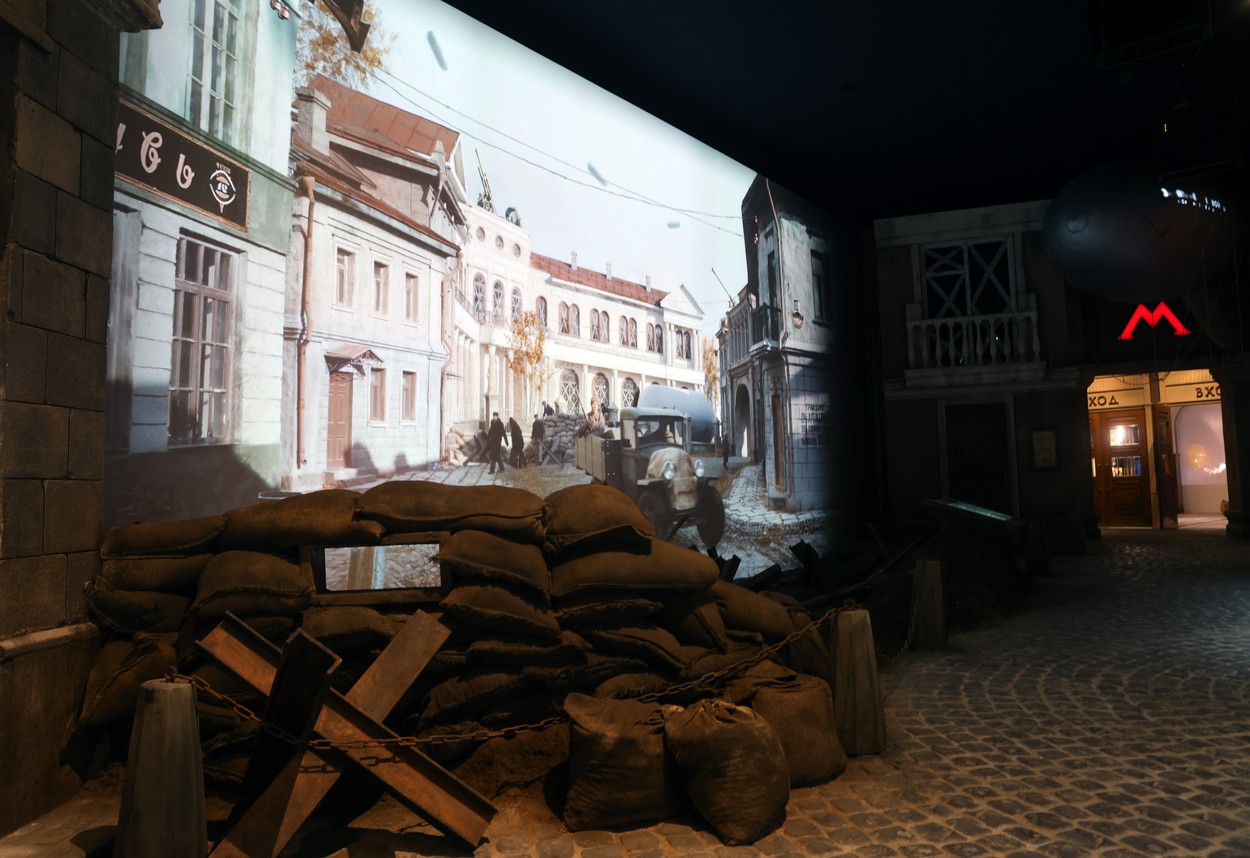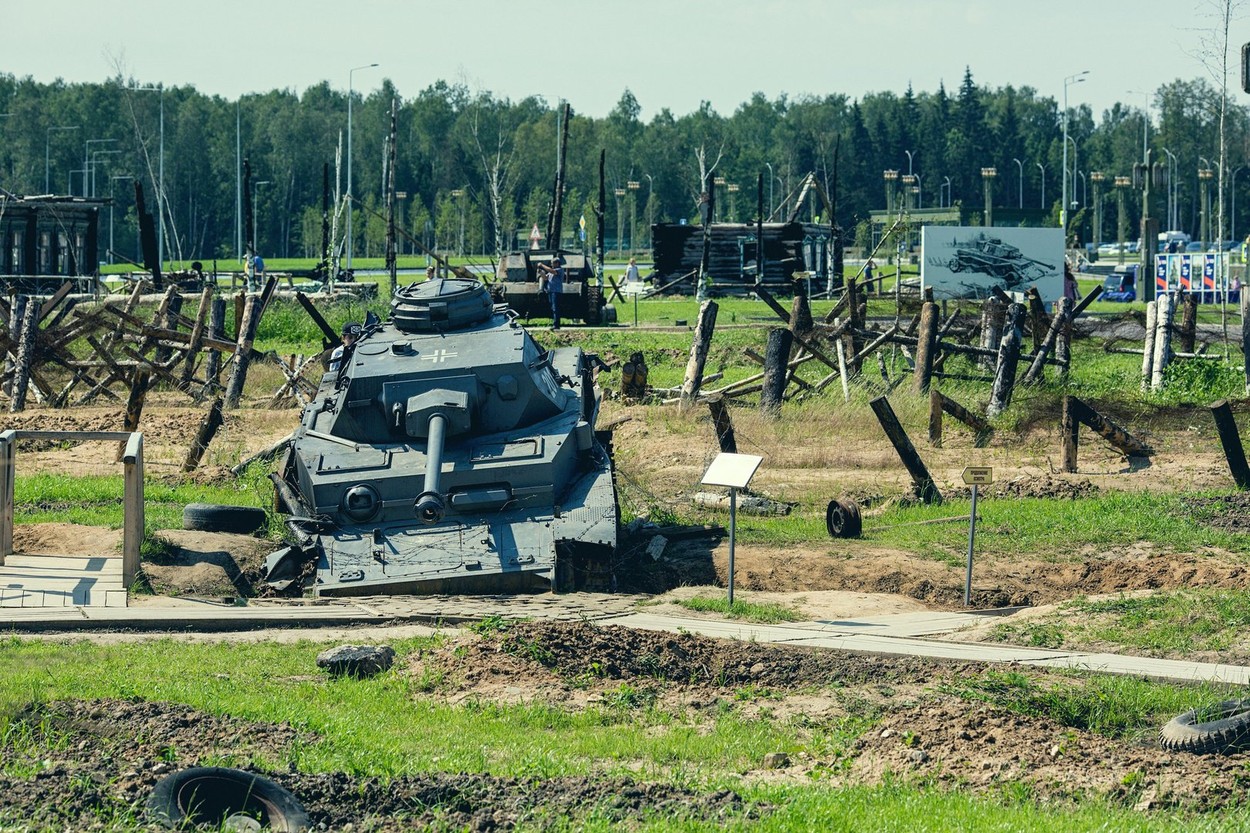
Perhaps the most important military operation of the Second World War was the attack of Nazi Germany on the Soviet Union. Operation “Barbarossa” had both immediate and distant consequences during the war, as well as after its end.
Being a subject of great interest, it has been widely discussed in universal historiography in terms of its causes, actual unfolding, as well as its consequences.
Most experts believe that the Battle of Stalingrad in the winter of 1942-1943 was the turning point of the campaign, and maybe even the war.
On the other hand, there are voices that claim that by the time the aforementioned battle broke out, the dice had already been cast and the Germans had lost momentum.
This theory is based on the fact that in the first year of the invasion, 1941, German troops arrived on the approaches to Moscow later than they should have, which ultimately led to the failure of the occupation of the Soviet capital. But why did the Germans approach Moscow only in the cold season?
The answer must be sought in the events that took place before the invasion of the USSR. In particular, the Germans had to help their Italian allies, who were having serious difficulties in Albania after the failed invasion of Greece.
Operation Maritza or the invasion of Greece – historical context
Operation Maritza was a German plan to invade mainland Greece, Crete, and the Greek archipelago. For Hitler, this was not the main goal, but he was forced to help Mussolini, whose troops mocked the Greeks.
In fact, Benito Mussolini saw Greece as easy prey, believing that the Italian forces would not face much difficulty. Duce wanted a quick victory, he did not consider it necessary to inform the German ally about his plans.
Moreover, in a conversation with his son-in-law, Count Ciano, Mussolini directly states that: “Hitler always put me in front of a fait accompli. This time I will pay them with my currency. He will learn from the newspapers that I occupied Greece.”
But, unfortunately for him, things didn’t quite go that way. Italy would launch an invasion of Greece in the last days of October 1940, using the already conquered Albania as a starting point. The Italians will have difficulties from the very beginning of the campaign, in just a few weeks the Greek army manages not only to repulse them, but even manages to occupy a large part of southern Albania.

Battle for Moscow (Photo: Battle for Moscow – exhibition)
The Italian forces would receive a new commander, as well as significant reinforcements, and as a result, they would launch a counterattack in early March of the following year, 1941.
Although the Italians would be deployed on a large scale, they would lose up to 12,000 men, after which Mussolini would order a halt. The reasons for the failure of the Italian army to bring the inferior Greek force to its knees, on paper, are many.
Here we mean the poor motivation of the soldiers, who did not understand why they should fight for someone else’s territory, as well as faulty equipment, the soldiers did not even receive winter uniforms, although there were battles in the mountains.
Fearing an imminent German attack, Greece mobilized troops to reinforce the Metaxa Line, which was built in the interwar period on the model of the more famous French Maginot Line. The geography of Greece is mostly mountainous, and this fact favors the defenders.
The Greeks were helped by British troops numbering about 60,000 men, who had previously been transported from North Africa. The German invasion would take place on the morning of April 6, 1941, when the German forces of the 12th Army would create two main lines of attack.
Thus, the attack was to come from the Yugoslav side, cutting the Belgrade-Thessalonica railway, and the main body of the army was to make an enveloping movement, bypassing the Metaxa line, which was too well fortified.
Despite the fact that the Germans were advancing on Salonika, the Greeks were reluctant to withdraw their first army, which was fighting in Albania against the Italians, not wanting to give them the satisfaction of an easy advance.
Furthermore, the Greek military would continue to show their disdain for the Italians, whom they believed they had defeated, and later, when the First Greek Army would negotiate a surrender exclusively with the Germans, again unwilling to give the Italians the satisfaction.
Although they fought determinedly, inflicting heavy casualties on the invaders, the Hellenic army lacked the antique equipment necessary to confront the German armored units.
This aspect, added to the fact that German forces already had the experience of victorious campaigns in Poland and France, meant that Athens was occupied.
Later, all of mainland Greece would be occupied after the Germans managed to capture the Corinth Canal. The Greek royal family, as well as the administration, hide in Crete.

Battle of the Second World War – reconstruction (photo: Boris Zhitkov / Alamy / Alamy / Profimedia)
The Commonwealth troops partially managed to evacuate, up to 10,000 soldiers were captured.
To occupy Crete, the Germans would develop Operation Mercury, planning to surprise the Greek defenses with a massive airborne assault similar to the one used in Belgium.
Because they underestimated the numbers of the Greek defenders, the German paratroopers suffered heavy casualties, making it the last large-scale Fallschirmjägers operation of World War II.
Gradually, the superiority of the Germans in numbers and equipment eliminates the resistance of the Greeks, they occupy the entire island by the beginning of summer.
Bad consequences for Germany caused by Operation Maritz
In a letter addressed to Benito Mussolini, Hitler warns him about a possible campaign against Greece: “I wanted, first of all, to ask you to postpone the operation until a more favorable season, at least until the end of the presidential elections in America.
I also wanted to ask you not to take action until you start the blitzkrieg on Crete. For this purpose, I intended to make practical proposals for the use of an airborne division and an airborne unit.”
As we can see, the German dictator did not forbid the Italians to invade Greece, but only drew their attention to the complexity of this undertaking, as well as to the choice of the appropriate time.
Forced to intervene to support their Italian ally, who had failed to defeat the Greek stag, the Germans attacked the USSR too late.
Although they enjoyed tremendous success early in the campaign, the blitzkrieg was halted with the arrival of autumn and the ominous appearance of you answeredwhich turned Russian roads into a logistical nightmare for the German military machine.
After the onset of frost and the resumption of the offensive on Moscow, the German army faced additional difficulties, mainly related to the excessive length of supply lines.
Thus, the Typhoon operation (the ultimate goal of which was the conquest of the Soviet capital) will end with the advance of the Wehrmacht on the approaches to Moscow. Daily reports of the period even claim that the soldiers saw the famous domes of St. Basil’s Cathedral, and some units reached the end of the tram line that went to Red Square.
But in the meantime, the lack of proper winter equipment, the exhaustion of troops and combat equipment, as well as numerous fresh divisions brought by the Russians from Siberia, will force the Red Army to push back the Germans near Moscow.
This would be the most advanced point the Germans would reach, and the opportunity to occupy the Russian capital would be lost forever, despite the efforts made in the following years. The blow to the Russians from the loss of Moscow would be enormous, especially in terms of morale.
Many practitioners of wrongful theories of history believe that if Plan Barbarossa had been launched a month earlier, or perhaps just a few weeks, Operation Typhoon would have succeeded and Moscow would have been occupied.
Literature:
– Anthony Beevor – Crete: Battle and Resistance
– Galeazzo Ciano – Ciano diaries 1939–1943
– Alexander Bevin – How Hitler Could Have Won World War II: The Fatal Mistakes That Defeated the Nazis
– David M. Glanz – When the Titans Clash: How the Red Army Stopped Hitler
– BH Liddell Hart – History of the Second World War
Read other articles on this topic written by Andrii Stan:
- “White shirt attack”, one of the most glorious and crazy Romanian military actions
- The military campaign of the Russians, which was a resounding success. The history of the counteroffensive, which was the basis of the German blitzkrieg
- The battle in which the Russian general sent 11 thousand Romanian soldiers to their deaths
- “Not a step back”: the famous Stalin’s order 227 and blockade special forces
- Battle of Wizna or “Polish Thermopylae”
- The story of Andriy Vlasov, Stalin’s successful general who defected to the Germans: Traitor or anti-communist?
- Who was Stepan Bandera: a hero for Ukraine, a terrorist for Russia/ Putin mentioned in his speech on Victory Day
- Lend-Lease or how the USA helped Russia not to disappear
- The Ukrainian genocide that Russia would like to forget
- Russia’s behavior then and now: from Katyn to Buchi, or how Russian propaganda tries to change history
- The Battle of Turtukaia is one of the most shameful defeats in the history of the Romanian army
- The history of two Chechen wars: Russia “wanted” and then “quick and clean” intervention
- Why the blitzkrieg of the Russians in Ukraine failed
Source: Hot News
Ashley Bailey is a talented author and journalist known for her writing on trending topics. Currently working at 247 news reel, she brings readers fresh perspectives on current issues. With her well-researched and thought-provoking articles, she captures the zeitgeist and stays ahead of the latest trends. Ashley’s writing is a must-read for anyone interested in staying up-to-date with the latest developments.